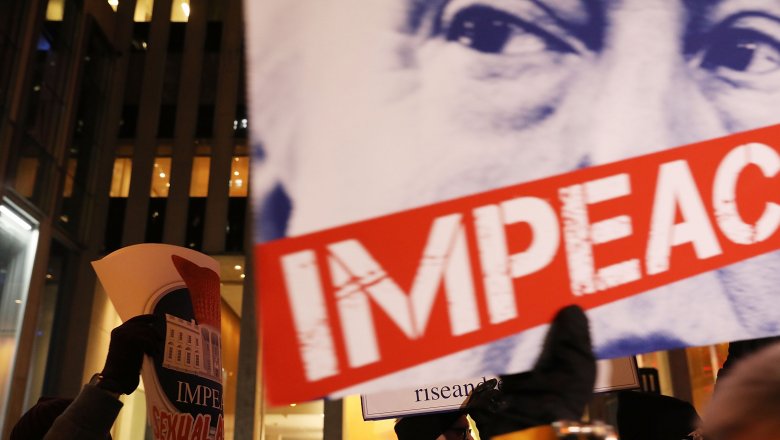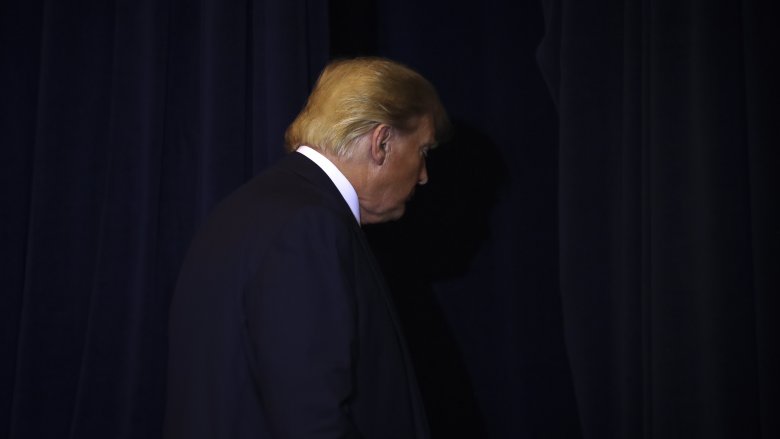What Actually Happens When A President Is Impeached
It's a common misconception that "impeachment" is the act of removing a president from office. It's not — it's the process that Congress uses to determine whether or not a president should be removed from office. A small distinction, but an important one. It means a president can be impeached and remain in office afterwards, in fact, historically that's happened two times. In total, there were only three presidents subjected to the process before the 2000s: Andrew Johnson and Bill Clinton were both acquitted and remained in office. Richard Nixon resigned in order to avoid the whole ugly affair.
Here's how impeaching a president works
Impeachment is a long process, and because it's been used so infrequently lawmakers are kind of breaking new ground every time they go down that road. The standard is pretty simple: The president can be impeached and subsequently removed from office if he's committed "treason, bribery, or other high crimes and misdemeanors." But there's no authority in place to oversee how that standard is interpreted by lawmakers, so the question of whether or not to impeach is really more about politics than it is about law.
Once lawmakers arrive at the decision to move forward, they have to proceed with caution. First, the "articles of impeachment" are brought to a vote by the House of Representatives. According to the New York Times, the results of the vote determine whether or not the president will be impeached. Impeachment is really the same thing as indictment, which is a formal accusation of criminal wrongdoing. If the articles of impeachment get a majority vote, the matter moves on to the Senate, where the actual trial happens, overseen by the chief justice of the Supreme Court. A team of House lawmakers serve as prosecutors and the Senate serves as the jury. Just like any defendant, the president gets to have a team of defense lawyers.
There are no formal rules for impeaching a president
Beyond that, there really aren't any rules for impeachment, which makes the entire process sort of frustrating for everyone involved, not just the guy on the receiving end. During Bill Clinton's impeachment trial, the New York Times says the Senate got to decide how many days of testimony they would hear, how many witnesses could be called, and how much time could be spent on depositions. Imagine if the jury in a criminal case had that kind of power.
What happens to the president when the impeachment process is over?
At the end of the process, the president is either acquitted or convicted. If he's acquitted, he goes back to the oval office and finishes his term. If he's convicted, he's removed from office and the vice president steps in to take his place. The Senate also has the power to bar the (former) president from serving in a federal office, but what they can't do is convict him of committing a crime. Before a criminal conviction and sentence can be handed down, the former president will also have to be tried in a criminal court. None of which is a lot of fun, so anyone stepping into the office of the president should probably just follow a simple piece of advice: Don't commit high crimes and misdemeanors.



